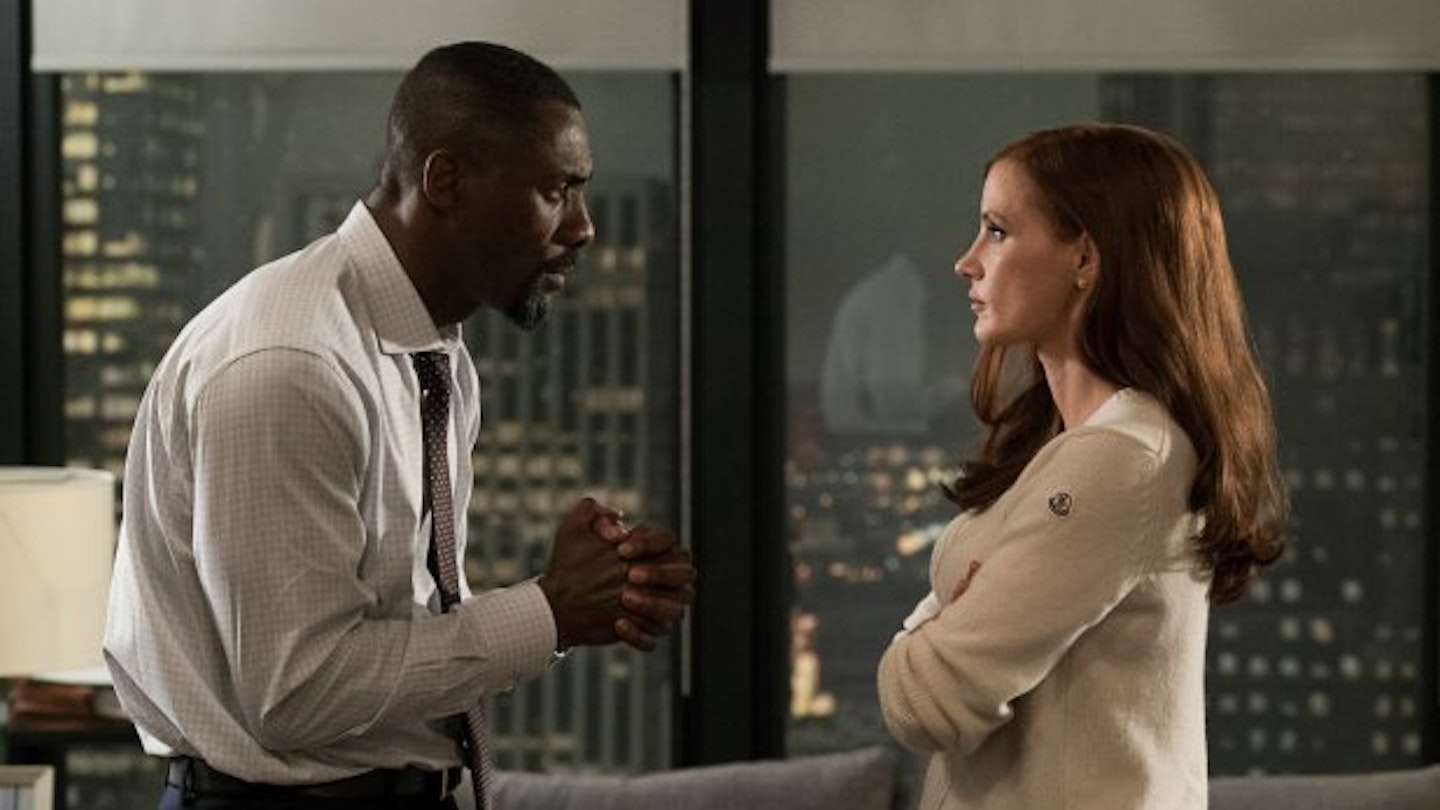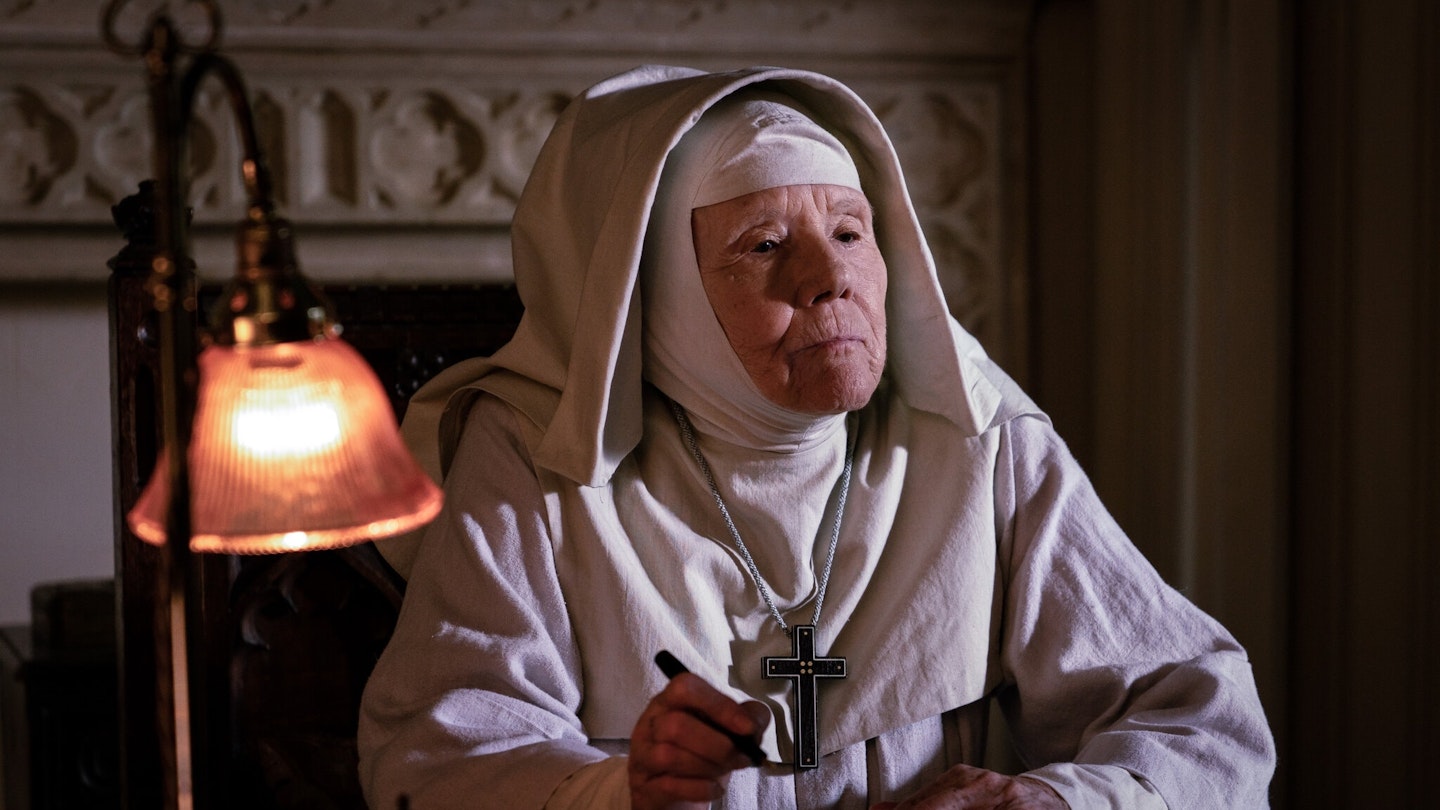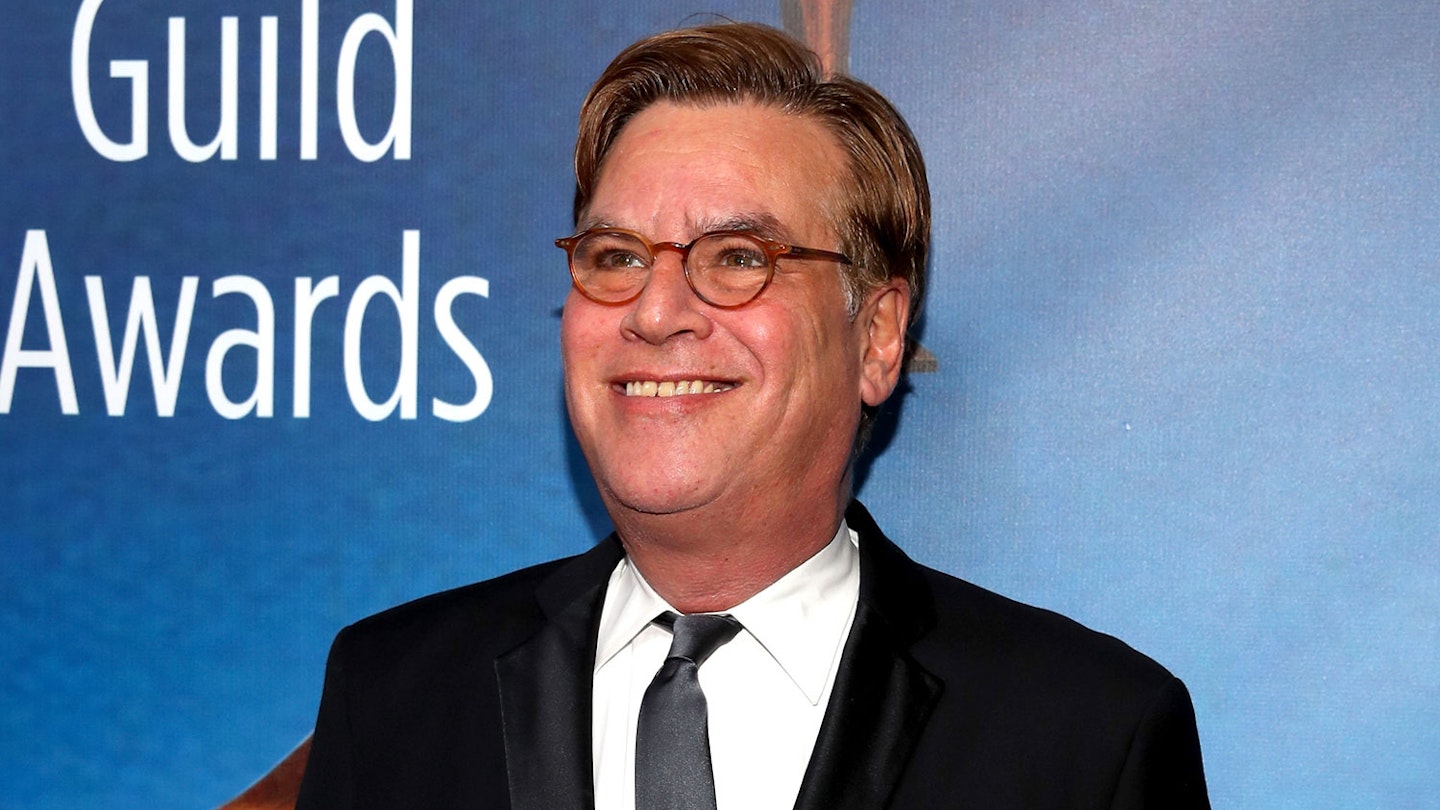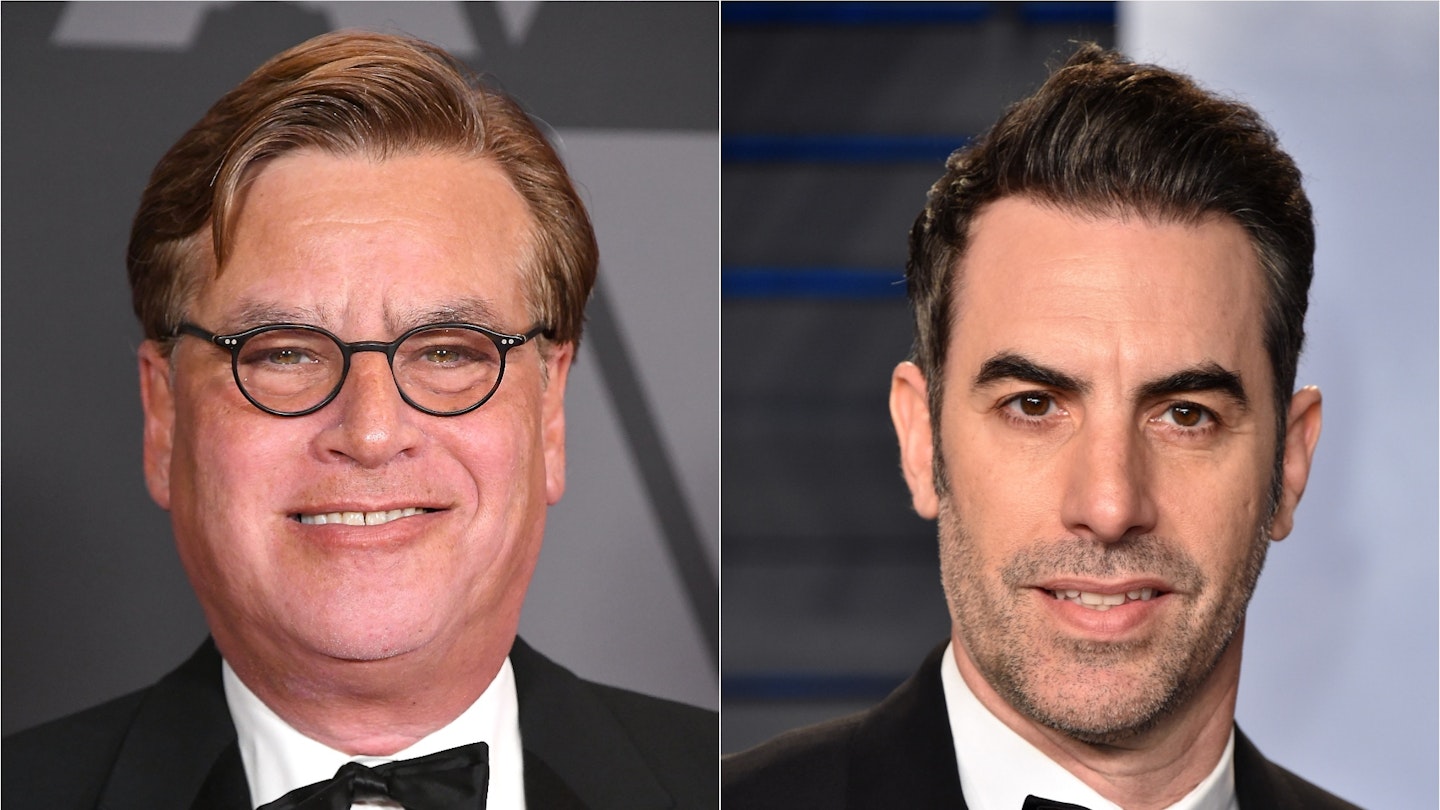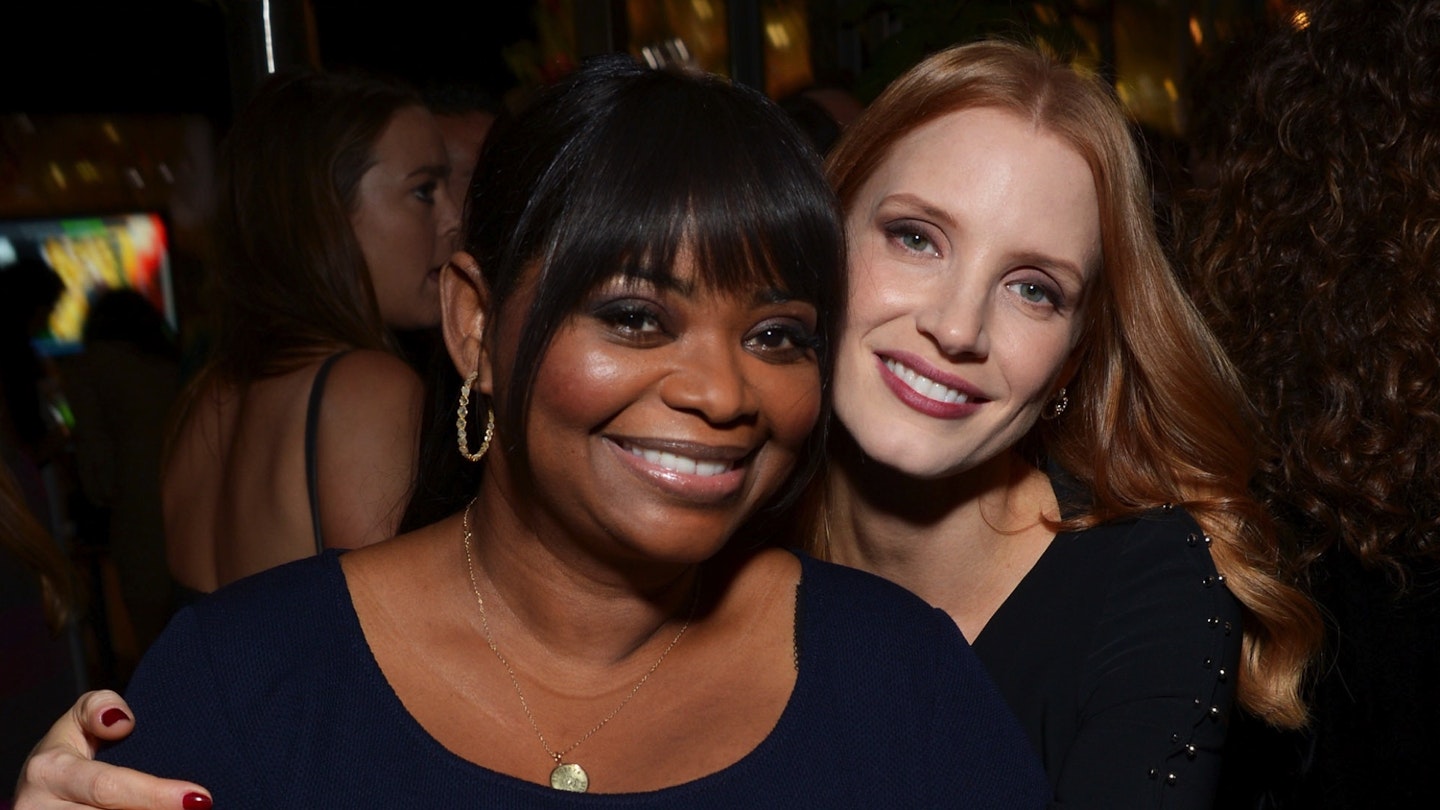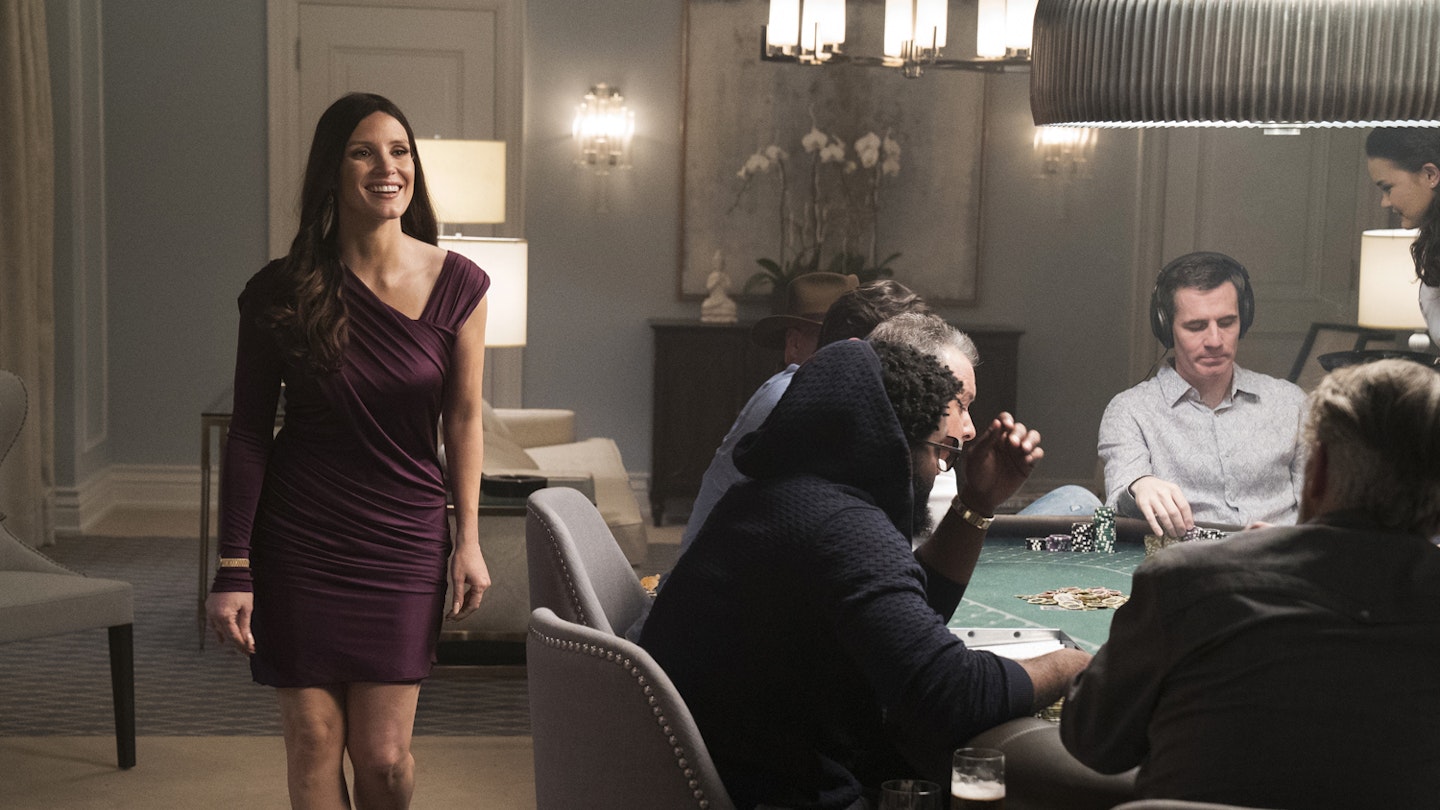Poker is a game of skill rather than chance, but despite the fact that livelihoods and lives can hang on the turn of a card, it has given us no end of heavy-handed and uninvolving films, without even the visual panache of sliding into home base to lift the storytelling. Aaron Sorkin’s based-in-fact directorial debut cleverly sidesteps this by focusing on the games runner not the game, and it’s when keeping his eye off the cards that he best captures the impossible tension of play.
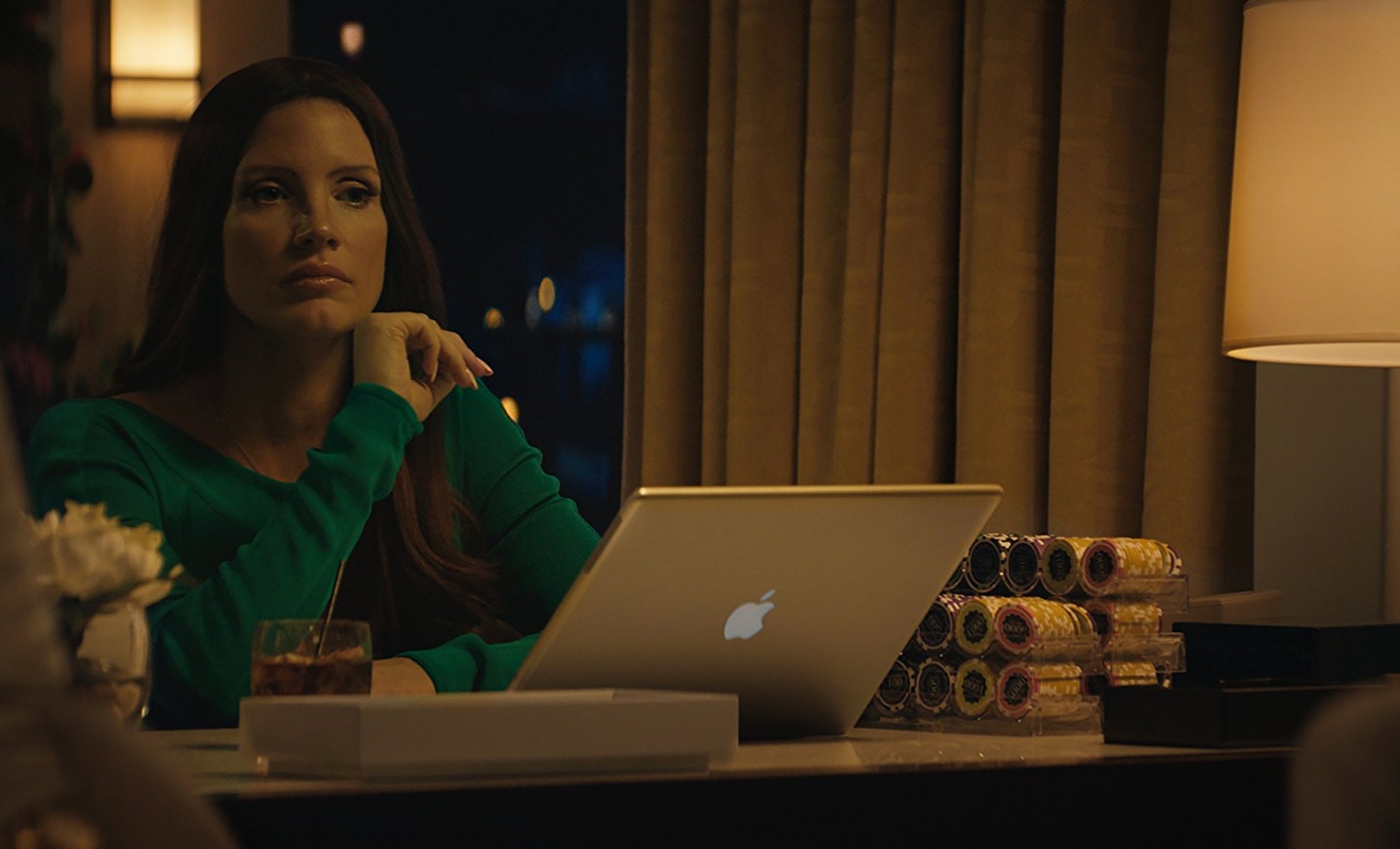
We meet Jessica Chastain’s Molly Bloom aged 20 as she enters the US team’s Winter Olympic trials. Disaster follows, she’s injured, and the devastated athlete instead heads to LA. While working as PA to a Hollywood sleazebag, she starts to run his weekly celebrity card game, and soon reinvents herself as a powerful and untouchable poker hostess. She doesn’t gamble, doesn’t get paid for her services, and lives off the extravagant tips of her high-rolling clients. It’s enough to keep her in Balmain and Louboutin, but there’s an ultimately devastating power differential.
That’s why we flash-forward to an older Molly, who’s been arrested and charged with involvement with the Russian Mafia and is desperately seeking help from Idris Elba’s wary lawyer, Charlie Jaffey. Bloom’s challenge is convincing him to take her case, never mind overcoming the government’s campaign to put her in prison. The question is what cards Molly is willing to show to secure her release. Will she dish the dirt or stay silent and suffer the consequences?
Chastain brings dramatic weight and nuance to a woman the tabloids reduced to a party-girl stereotype.
From The West Wing to The Social Network, Sorkin has been deservedly criticised for his female characters, but Chastain is great as the determined, beleaguered Bloom and brings dramatic weight and nuance to a woman the tabloids reduced to a party-girl stereotype.
But the showiest performance here is Sorkin’s, in the first time that the screenwriter-turned-director has been given entirely free rein. Bloom’s narration is delivered in fluent ‘Sorkinese’, where Chastain and Elba lecture each other on one another’s backstories as a means of turning exposition into know-it-all character trait. The effect is exciting and effective, but it’s awfully familiar.
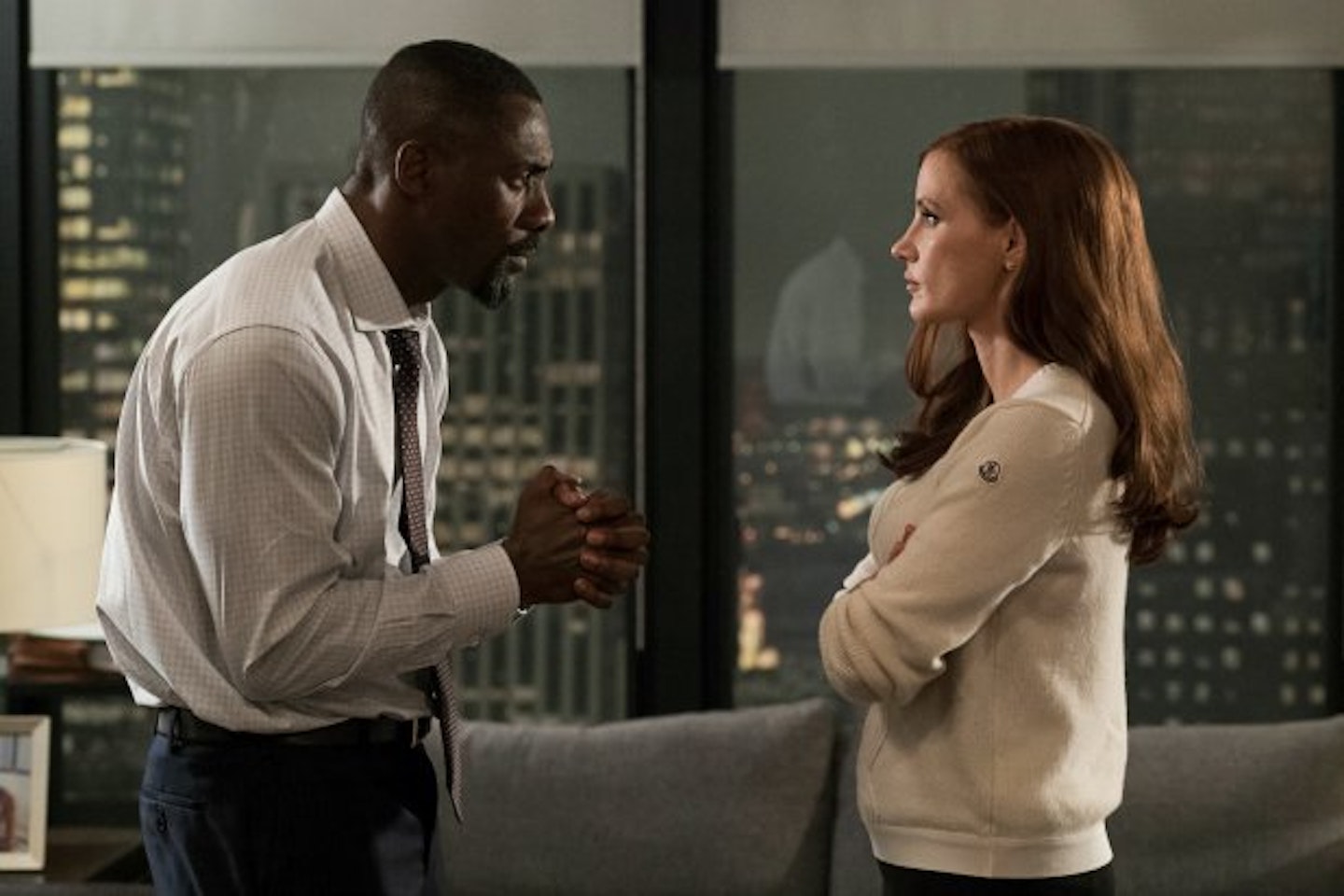
The film’s biggest challenge is going to be context. In a post-Weinstein era, its moral feels murky. Molly’s act of defiance seems less laudable now, the behaviour of some of the men she deals with more worrying than she seems to think. While Sorkin makes it clear who’s deserving of praise or disgust, you sense audiences will fundamentally reject his conclusions.
Sorkin may condemn a world where women like Molly are mistreated by powerful men, but he doesn’t propose any revolution. As such, this feels like a small story, well told, but stopping short of risking anything high stakes.
